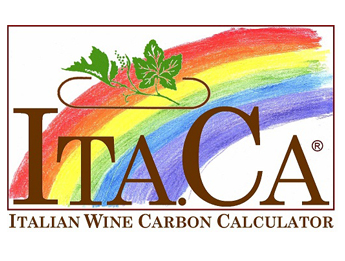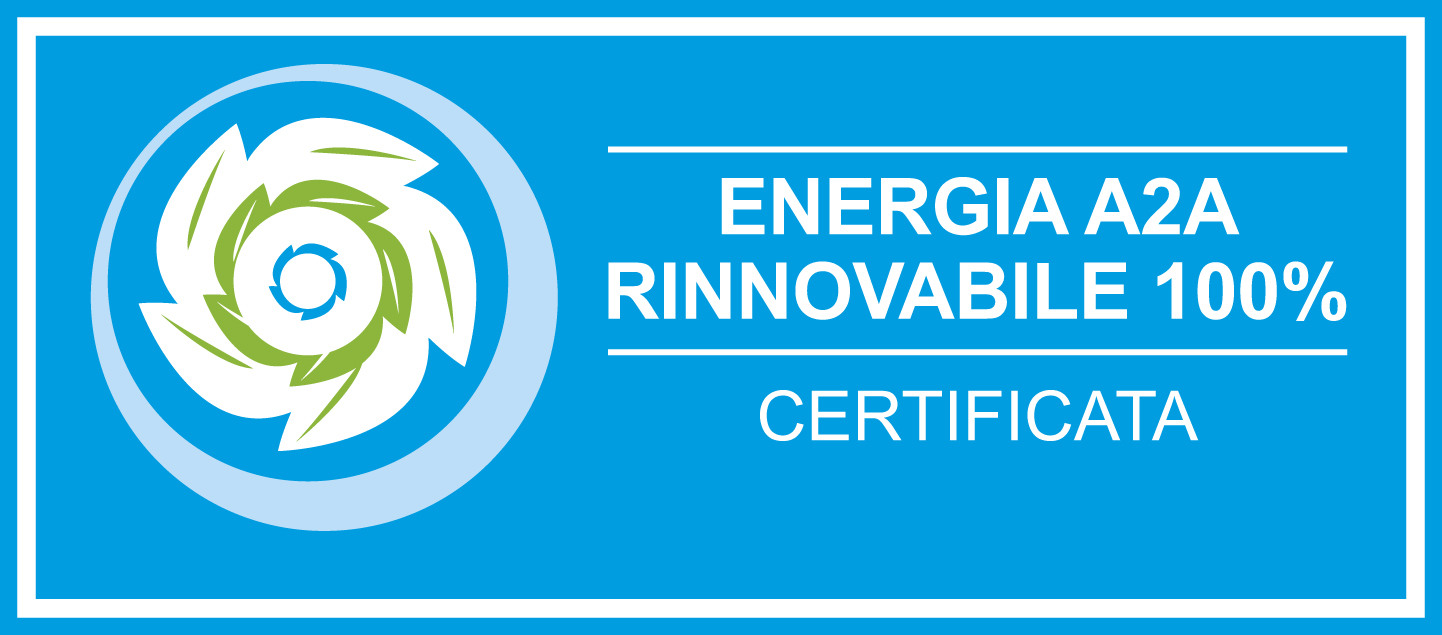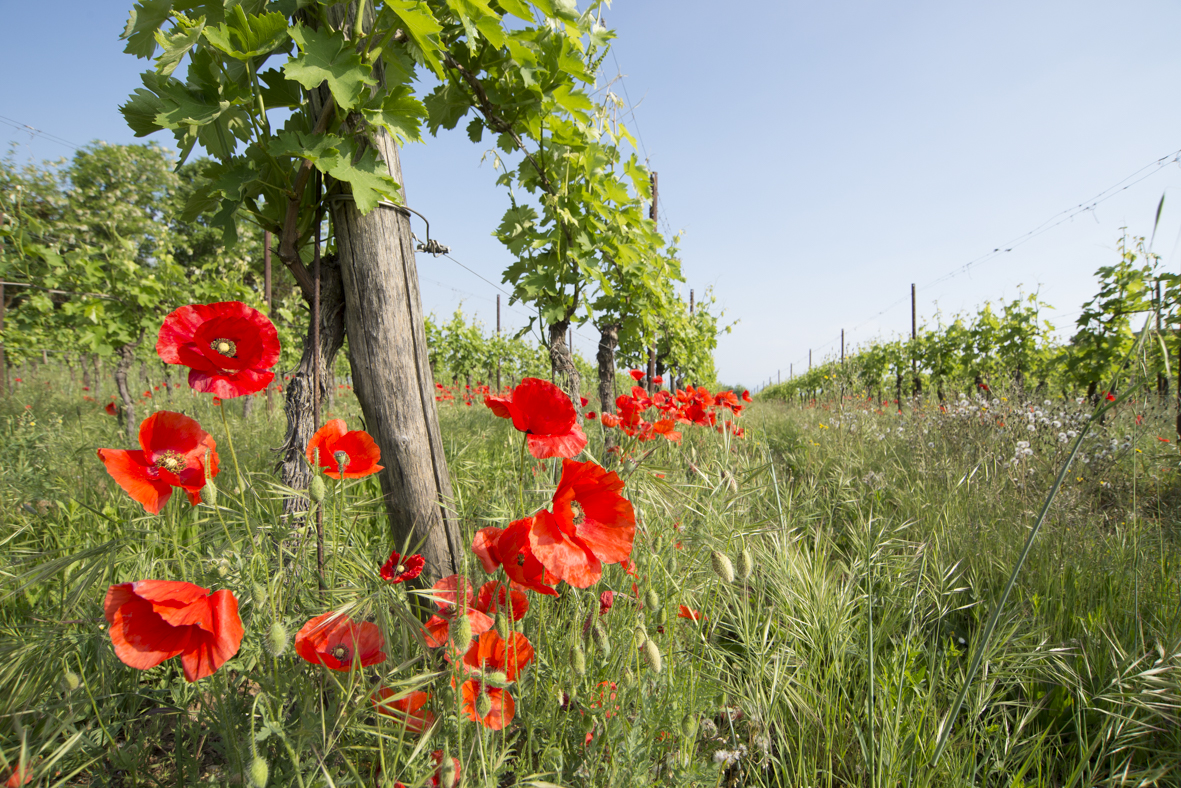THE ENVIRONMENT AND US - 2023 UPDATE
For decades, we have been doing our best to produce wines while respecting the environment in which we live. As we have written on the "Us and the Environment" page of our website www.selvacapuzza.it for several years, there are various ways in which we act to preserve our land. On the same page, we have taken a stand by stating that we have chosen not to obtain organic certification. "Responsibility towards the environment does not end with obtaining organic certification. We believe that our wines are more environmentally friendly than many that carry the organic certification. 'Organic' and 'ecosustainable' are not just a series of practices towards the environment but are, in our opinion, an attitude of care and attention towards both humans and nature."
In concrete terms, for decades we have not used herbicides, we limit the passage of machinery between the rows to keep the soil alive, we have reduced the weight of the bottles, monitored the water and carbon footprint, and use natural methods to combat pests, such as sexual confusion.
If you come to visit us at Podere Selva Capuzza, you can see all of this with your own eyes, especially our commitment to the environment. In fact, 15% of the estate is dedicated to biodiversity: various groves, a pond, an olive grove. All of this ensures that wildlife finds a welcoming refuge on our estate. For some years now, a family of kestrels has been nesting on the roof of the cellar; furthermore, it is easy to see hares, squirrels, pheasants, and we have also spotted hoopoes, robins, and foxes. It is wonderful to have this kind of wildlife on our estate.
Just as we have chosen not to obtain organic certification, we have also chosen to adhere to the voluntary certification SQNPI, the National Integrated Production Quality System. At a certain point, it is no longer sufficient to simply say to ourselves that we are doing good work, but it is right to prove it. The symbol of the bee, so fragile and in need of protection, like our environment, immediately appealed to us. We must raise awareness in any way possible towards the environment, the protection of animal species, and biodiversity. Here is our first certified step. For the rest, we look forward to welcoming you to experience everything you have read here.
April 2023 Update:
We are starting the experimentation of organic cultivation for the four red grape varieties and Tuchì for San Martino della Battaglia. Starting this year, Lugana and San Martino vintage 2022 will carry the SQNPI certification label. We are experimenting with the use of a combination of different plant species, sown in alternating rows over much of the surface area of all six cultivated grape varieties. The sowing of different plant species, with their characteristic root systems, helps to improve soil aeration, thus enhancing air circulation and water percolation, while also providing organic nutrients. It provides food and shelter for beneficial insects, and the various staggered blooms bring colors and scents to the surrounding environment.
We aim to promote the development of a natural environment to rediscover plant and animal biodiversity that helps maintain balance among species, even in the presence of cultivation. Clover has been included as a leguminous plant: it enriches the soil with nutrients and allows for the use of a lower quantity of fertilizer.
March 2022 Update:
We have begun the procedures for SQNPI certification. After five years of experimental organic cultivation on 5 hectares of Turbiana in the San Donino area, we have decided to return to the integrated pest management practices that we have been employing across the entire surface for years.
Our experience with organic cultivation of this type in this area has resulted in a more negative impact than expected. Specifically, it requires a high number of vineyard passes, leading to soil compaction and asphyxiation, along with a significant carbon footprint impact. Additionally, there is an accumulation of copper in the soil.
The combination of practices aimed at reducing chemical and carbon impact, which we have been experimenting with for years, appears to be the best solution from both an environmental sustainability and quality standpoint for the Turbiana variety.
The environment and us
“We believe organic farming is not the only way to reduce the environmental impact; there are many other solutions, less visible and trendy, but that can lead to reliable and continuous results and benefits regarding sustainability in the wine production.””
Often we are asked if we produce organic wines.
Our answer: no!
We believe certifications are not broad enough to define one's ethos, let alone practices, attitudes and sensitivity.
We think each company - and human - should choose their footprint in the world, according to their philosophy and values.
More specifically to winemaking, each company should find its balance, for which its geographic location plays a fundamental role.
The growing trend of organic farming has played a remarkable, non-negligible role in decreasing the use of harmful chemical products, but we believe this choice should be rooted in and reached through stronger values than just the obtention of certification, sometimes just for marketing purposes.
If agriculture and farming are to respect both the environment and the consumer, then they need to be grounded on strong ethical, moral and honest values. We see it as a way to give back to the land, at least to a small degree, for what the land offers the farmer. The responsibility towards the environment does not end with certification. We believe our wines are more sustainable and eco-friendly than many other wines with that certification.
We prefer to have a sustainable and lasting attitude towards people and nature.
This philosophy is at the core of the management of the whole company.
Regarding agricultural practices and the surrounding nature
We do our best to keep our land alive. Since 2010 we do not use herbicides. Not a drop. We remind herbicides are allowed, on a minimum quantity, for organic farming.
We interfere as little as possible with the growing process, taking full advantage of the airing we are lucky to benefit from, given our location: on the top ( cappuccio) of the morainic amphitheatre. Our vines are trained to allow a healthy air flow beneath their green wall.
Vineyards have wide grass paths. We cut it to a maximum of twice a year.
-We use grass and trimmed vines to produce compost to give back to the soil its organic matter.
-We harvest by hand.
-The chestnut wood poles of our vineyards are only naturally treated.
-We dedicate time, room and resources to the often under-evaluated and essential biodiversity. We preserve our woods, the two ponds and the bushes in our property, to protect the indigenous flora.
-The property is an ecosystem oasis where hunting is forbidden; the native fauna is free to grow in our woods as in the surroundings.
-We apply to the limits of the European “Measure10” farming protocol.
-Water is another important element we pay full attention to. To avoid water spillage and waste almost all our vineyards are equipped with a drip irrigation system, coupled with a careful management system for humidity data.
Regarding production practices and active processes:
It is essential to us to reduce any kind of pollution. We constantly work to reduce our CO2 emissions, we have been among the first wine companies to track their carbon footprint; in 2010 we started with the project “Italian Wine Carbon Calculator”.
The maximum bottle weight for still wines is 550 gr. but the average weight is way lower. Glass weight is one of the most relevant causes of pollution in the wine industry.
We prefer to source suppliers, consultants and employees locally. It is our way to contribute to the local economy and prove our commitment to reducing Co2 emissions by diminishing distances travelled to work or with transportation of supplies.
We prefer to use products made from recycled materials; there are three recycling areas in the property.
Electric power is supplied from certified renewable sources.
Our cellar's western side is covered by a vertical garden to cool down the inside temperature and help reducing the building's impact on the landscape. Southern and eastern sides are covered by a natural hill. The northern side hosts our portico for wine tasting and events.
We use only paper boxes from recycled paper, and above all, with no plastified labels. For printings, we use watercolours only.
Organic farming is not the only way to reduce the environmental impact; there are many other ways, less visible and trendy, which may lead to sustainable wine production.
We think it is important to dedicate part of your time to the community and to preserve the local heritage.
We do that by participating in various non-political associations and consortia, discussing and supporting community services and undergoing changes, while accepting their full consequential responsibilities.
We believe we can still do much more to arouse curiosity and interest on this matter, as well as to leave the smallest possible footprint on our planet.
We strive to find new ways to reach this goal. Thank you for helping us with new ideas and advices.












